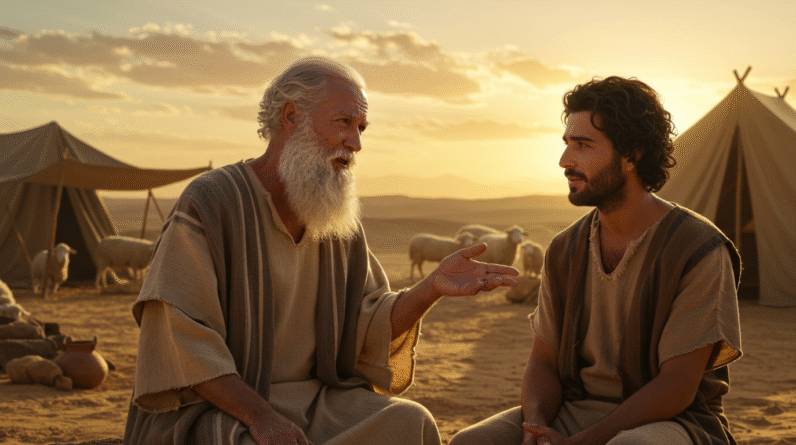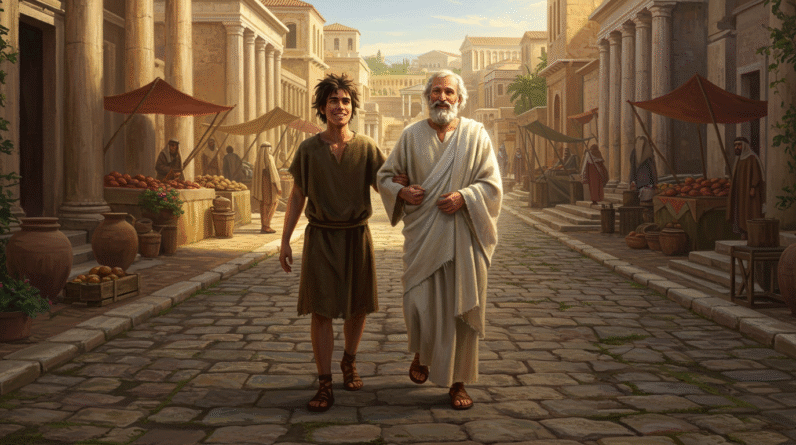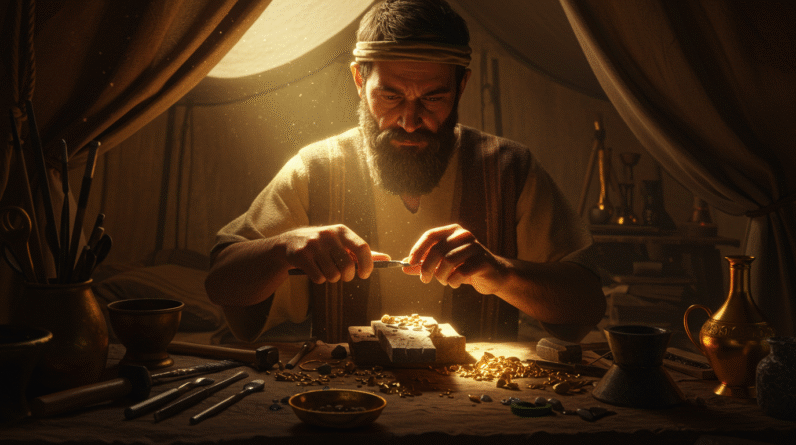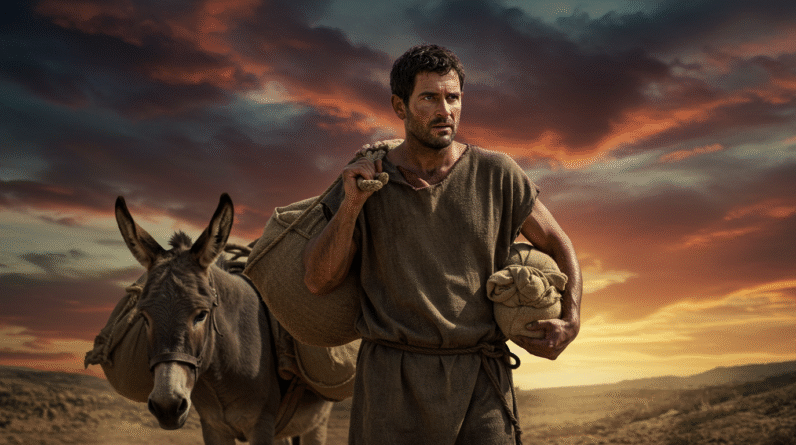Discover Jaazaniah’s role in Ezekiel—an overlooked tale of leadership, faith, and idolatry—offering timeless insights relevant to today’s spiritual journey.
Exploring the Role of Jaazaniah in Ezekiel
Jaazaniah is a lesser-known character in the Bible, primarily appearing in Ezekiel, yet his story offers profound insights into faith, leadership, and the human tendency towards idolatry. Situated in a turbulent time in Israel’s history, his role as depicted in the visions of Ezekiel serves as both a warning and a lesson to believers everywhere. Through the lens of Jaazaniah, we uncover timeless truths that challenge us in today’s world.
Jaazaniah: Key References
A key reference to Jaazaniah can be found in Ezekiel 8:11, where his presence among the elders engaging in idol worship is highlighted, defining his narrative.
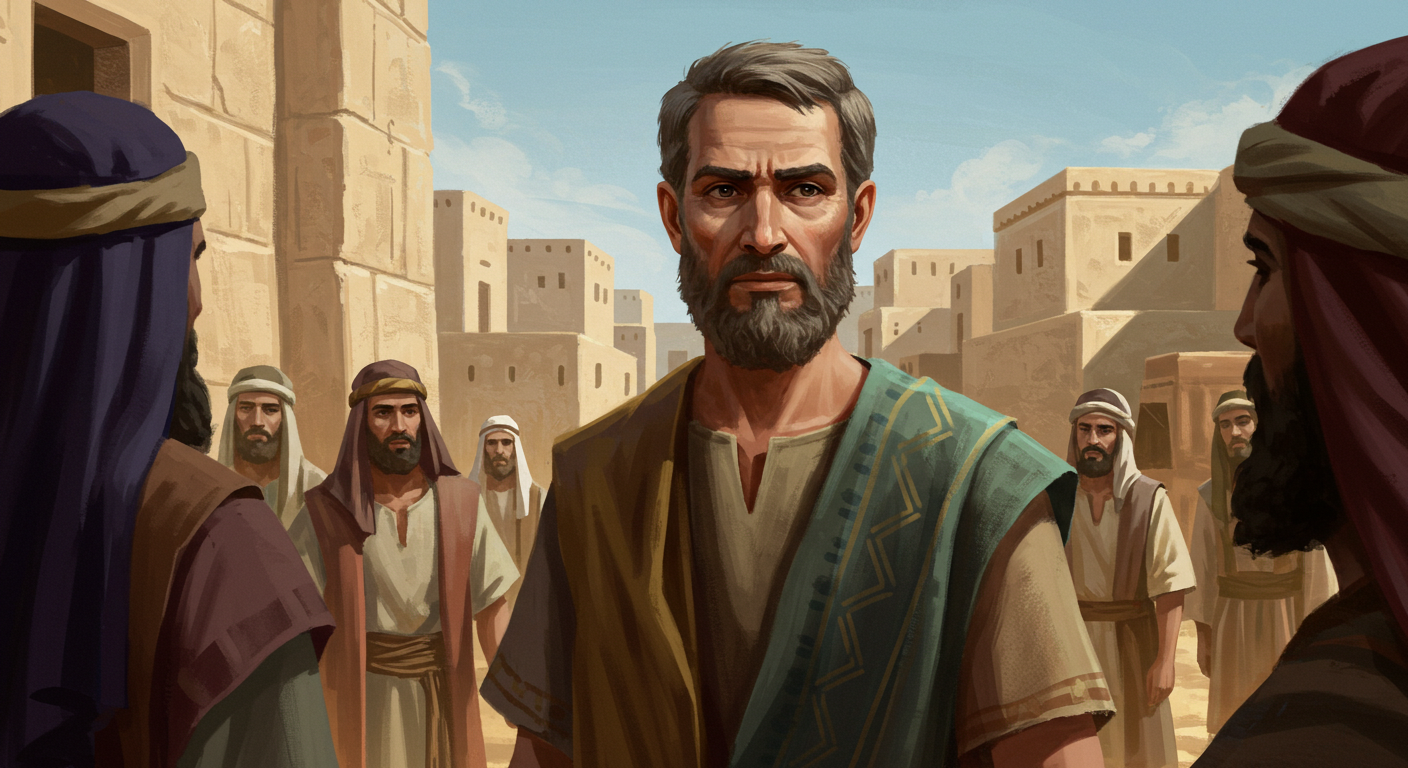
Introduction
Imagine being transported to a vision, witnessing something at once compelling and devastating—a group of elders, deeply respected leaders of the community, caught in the act of idol worship. This shocking scene is where we first encounter Jaazaniah in the book of Ezekiel. His inclusion in this prophetic vision underscores a pivotal moment of revelation about the spiritual condition of Israel’s leaders during this era. Jaazaniah, along with his fellow elders, becomes emblematic of the nation’s inner corruption, reminding us of the ease with which even the devout can stray from righteous paths.
Their Story in the Bible
Ezekiel’s vision, as recounted in Ezekiel 8:11, paints a startling picture of Jaazaniah and the elders, situated within the temple courts—where holiness should prevail—engaged in idolatry. This vision serves as a divine indictment against the spiritual leaders of Jerusalem, who were meant to guide and uplift the people. Instead, they were participating in abominations, surrounded by incense and images that defied God’s covenant.
Jaazaniah’s presence in this vision implicates him in these acts of idolatry, showcasing the deeply rooted theological crisis facing Israel. He stands as a symbolic representation of those entrusted with leadership who have chosen to follow personal and cultural allurements over divine commandments. His story starkly illustrates how far the nation’s leaders had fallen, with their actions cloaked in secrecy, yet fully exposed by God through Ezekiel’s prophetic insight.
The depiction of Jaazaniah and his fellow elders forms a critical narrative that explores themes of hidden sinfulness and the duality of human nature—professing faith in one breath while covertly indulging in spiritual betrayal in another. It invites readers to reflect on how external appearances of faith can sometimes mask internal dissonance and disobedience.
Lessons from Their Life
From Jaazaniah’s story, we can glean numerous lessons that resonate with modern readers. One significant lesson is the dangerous allure of idolatry, not just in the physical sense but in the figurative, as well. We live in a world rife with distractions, and just as Jaazaniah was swayed by cultural idolatry, so too can contemporary individuals be drawn away by the idols of materialism, power, or personal ambition.
Another profound lesson from Jaazaniah’s existence in Ezekiel is the importance of integrity in leadership. Leaders are called to be guardians of moral and spiritual values, yet Jaazaniah exemplifies those who succumb to personal temptations and societal pressures. This story encourages us to seek and support leaders who embody transparency and authentic faith.
Lastly, Jaazaniah’s story warns of the consequences stemming from hypocrisy and secret defiance of God’s commandments. His participation in idolatry stands as a cautionary tale against the perils of spiritual complacency, urging believers to consistently align their private actions with their public declarations of faith.
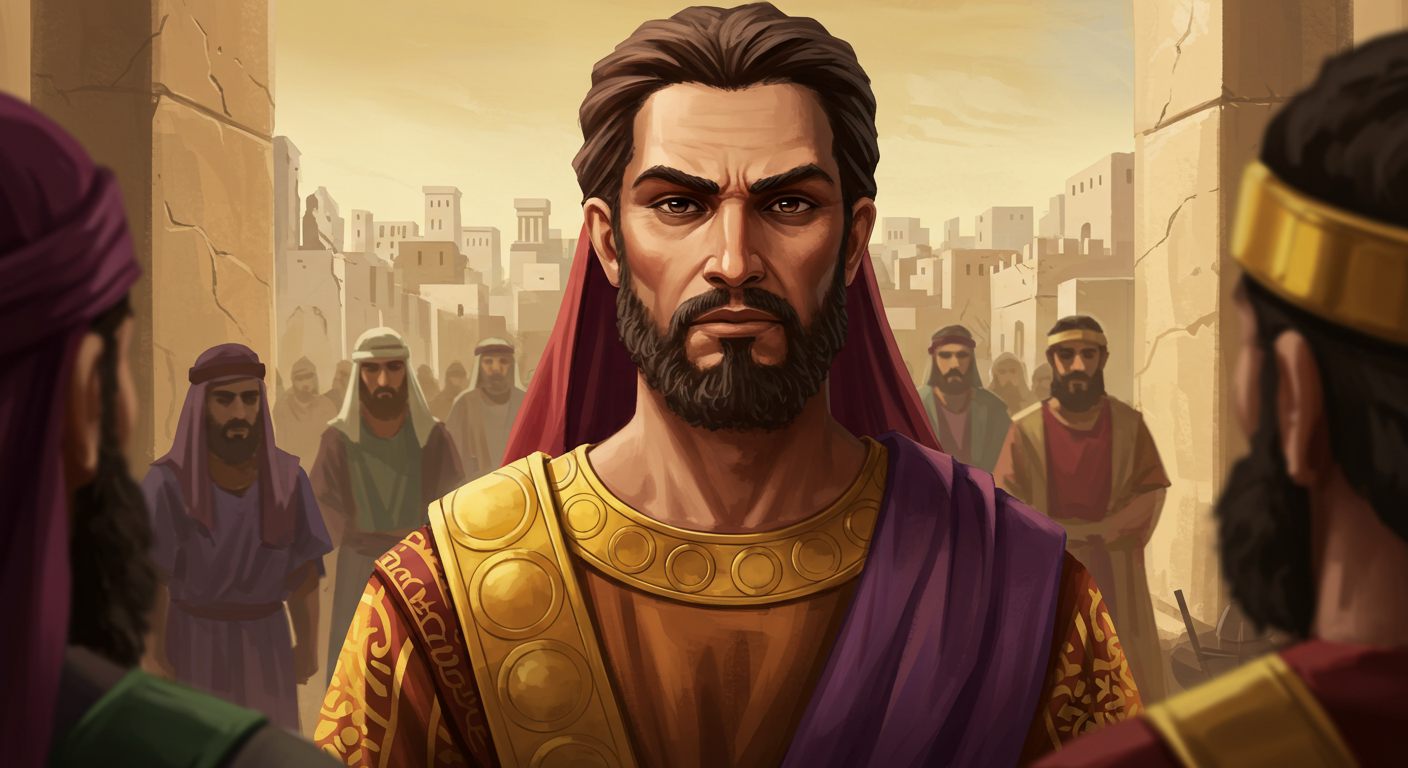
Connection to Today’s World
In today’s complex world, Jaazaniah’s narrative feels especially relevant as it mirrors the ongoing struggle between genuine faith and societal pressures to conform. Much like the elders who led the people of Israel, today’s leaders—whether in religious, political, or personal spheres—face immense challenges in maintaining integrity amidst compromising influences.
Jaazaniah’s story invites us to reflect on how we, too, might stand in contradiction to our espoused beliefs through actions or choices that prioritize convenience over conviction. It challenges communities and individuals to strive for authenticity in their spiritual and moral lives, serving as a call to renew faith commitments that are more than superficial gestures.
In an age where image often supersedes substance, the story of Jaazaniah reminds us of the necessity of building lives and communities upon foundations of truth and devotion, despite societal pressures that might tempt us otherwise. By embracing this cautionary tale, we can better navigate our spiritual journeys, ensuring they align with deeper, transformative truths.
Key Bible Verse
“And before them stood seventy elders of Israel, and Jaazaniah son of Shaphan was standing among them.” — Ezekiel 8:11
This verse succinctly underscores Jaazaniah’s involvement in the significant yet disturbing events witnessed by Ezekiel. The imagery of respected leaders collectively engaging in idolatry underlines a powerful moment of divine revelation, emphasizing the conflict between perceived righteousness and hidden sin.
Thought-Provoking Question
As you reflect on Jaazaniah’s story, consider this: In the quiet places of your heart, how do your actions align with your stated beliefs? Are there areas where societal or personal idols might be undermining your faith journey?
Historical/Cultural Context
Understanding the historical context of Ezekiel’s visions is crucial. During this time, Israel was under threat from external powers, leading to political instability and spiritual erosion. The leadership failed to uphold the covenant with God, succumbing to foreign influences and practices. Jaazaniah’s participation in idol worship was symptomatic of broader societal decay, emphasizing the need for spiritual renewal and reformation during this period.
Comparison with Other Characters
Comparison with other biblical figures such as Aaron, who famously crafted the golden calf in Exodus, shows parallel failures among leaders entrusted with spiritual guidance. Both stories highlight moments where leaders, in positions of influence, chose culturally palatable paths rather than challenging, yet divinely ordained ones. These narratives draw sharp attention to the role of choice in leadership and the impact it can have on a community’s spiritual trajectory.
Prayer
Heavenly Father, we come before you recognizing the temptations and idols that vie for our attention and allegiance. We ask for clarity and strength, much like Ezekiel, to see beyond surface appearances into hearts that are wholly yours. Help us to guard our integrity and remain steadfast amidst the pressures that seek to sway our convictions. Guide us with your wisdom, that we may lead lives pleasing in your sight. Amen.
As you delve deeper into the story of Jaazaniah, I invite you to consider his narrative as a mirror reflecting both the challenges and opportunities within your spiritual journey.


